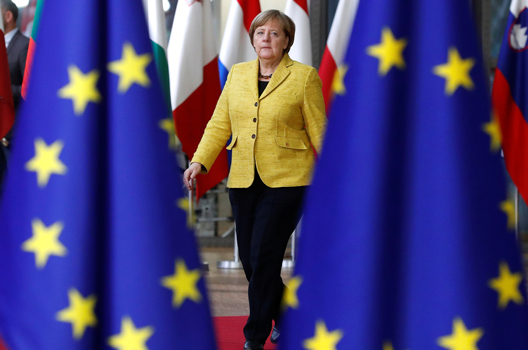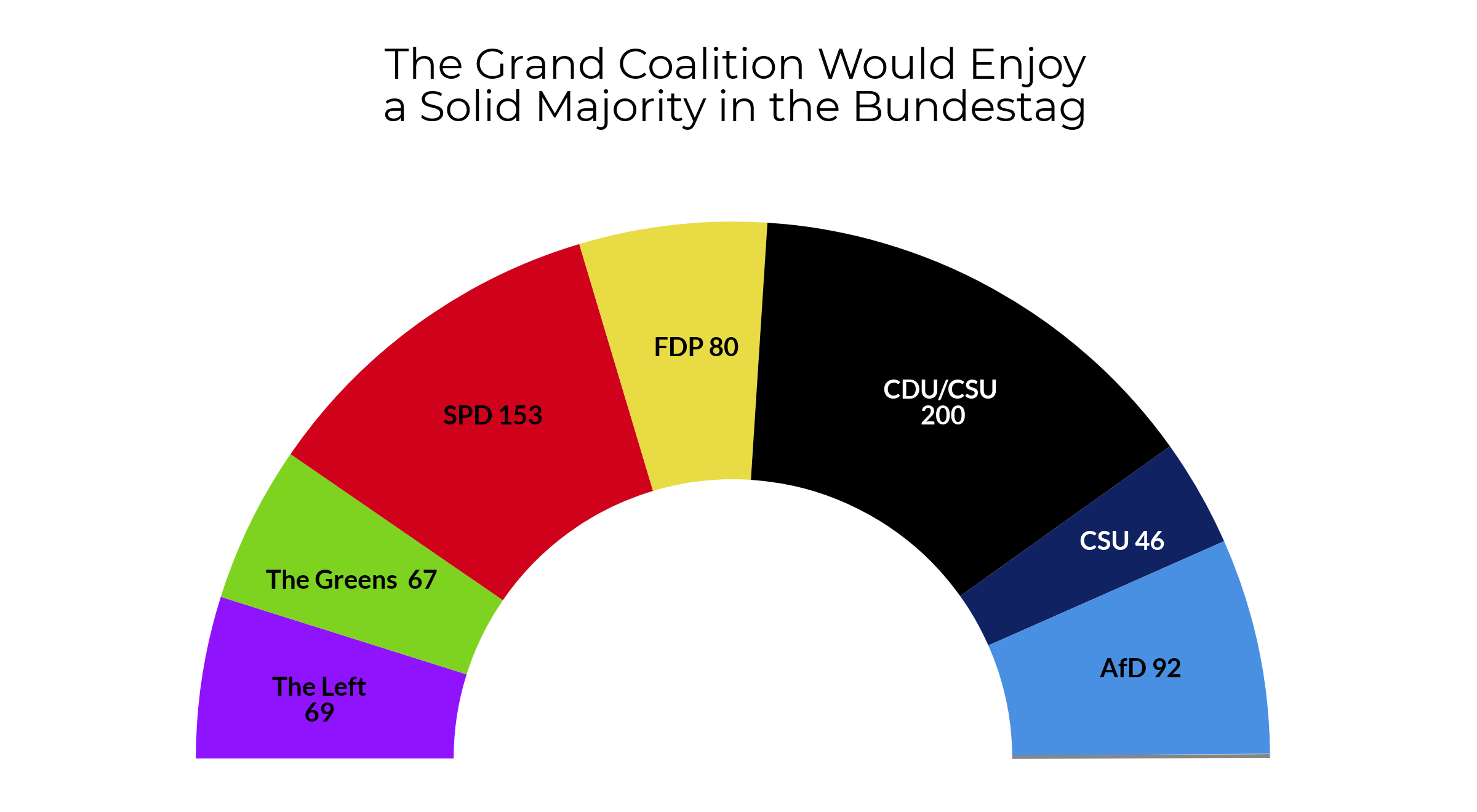
Atlantic Council analysts discuss agreement that could end political uncertainty in Germany
German Chancellor Angela Merkel on February 7 moved a step closer to forming a coalition government that would include her conservative Christian Democrats (CDU/CSU) and the center-left Social Democrats (SPD).
But first, more than 460,000 members of the SPD will need to approve the coalition agreement in a postal ballot. The results will be announced on March 4.
Approval of the deal would end more than four months of political wrangling that have followed an inconclusive election in September and keep Merkel at the helm for a fourth term as chancellor.
Many across Europe seem relieved that after months of talks Berlin has inched closer to a new government that can take up the EU reform agenda. However, with the third so-called grand coalition since 2005 still far from a done deal, frustrations are growing within the partners and public support is wearing thin.
Atlantic Council analysts took a close look at the deal. This is their take.
Bart Oosterveld, the C. Boyden Gray fellow on Global Finance and Growth and the director of the Global Business and Economics Program at the Atlantic Council.
What does the deal say about reforming the European Union?
Strengthening the EU is a top priority of the coalition agreement, and the draft agreement opens with the section on Europe. News of the coalition deal was well-received in Paris especially as the Macron government will have a strong pro-Europe partner in the Germans.
Among other initiatives, the coalition plans to increase contributions to the EU to help close the gap when British contributions end after Brexit, and it aims to work with the EU on strengthening the EU parliament and create a European Monetary Fund, among other things.
That being said, there are key financial and economic topics in which it is unlikely that the German and French governments will agree, such as Eurobonds, the possibility of a European finance minister, etc.
What are the hurdles to overcome?
The window of opportunity for meaningful reforms in the short run is limited. In terms of other major elections, the Italians will elect a new parliament on March 4, and the prospects for smooth coalition forming there seem uncertain at the moment.
Following the scheduled departure of the United Kingdom from the EU late March next year, there will be European elections, which will change the leadership of the European Commission.
 Jörn Fleck, associate director in the Atlantic Council’s Future Europe Initiative.
Jörn Fleck, associate director in the Atlantic Council’s Future Europe Initiative.
What is in the deal?
The draft coalition deal provides for additional spending and tax reduction worth $58 billion over four years. This includes infrastructure spending on digitization and broadband expansion, securing pension levels through 2025, and investments in education, health care, and homeland security.
The solidarity tax, established to support reconstruction in East Germany, will be phased out. In a concession to the SPD, short-term employment contracts will be limited to eighteen months. At the same time, conservatives secured a 180,000-220,000 cap on immigration and strict limits on family reunifications.
On Europe, the draft agreement signals Germany’s willingness to work with French President Emmanuel Macron on Eurozone reform, contribute more to the EU budget, and shift away from austerity toward more investment. At the same time, however, it reiterates the importance of the Stability and Growth Pact. The pact will disappoint those that had hoped for a firm commitment on defense spending as it doesn’t mention NATO’s 2 percent goal.
Are there any big changes from the last grand coalition?
Not really. On policy and substance, the openness to talk about Macron’s EU reform proposals may mark the biggest shift. Similarly, exploiting the full fiscal space granted by Germany’s budget surplus would likely not have happened under Wolfgang Schäuble as finance minister. Apart from that, we will see some changes in personnel. Again, most notable is that the SPD has secured the finance ministry and won six of fifteen ministries overall despite its losses at the ballot box last September.
What are the next steps?
In the case of Angela Merkel’s Christian Democrats, the party will confirm the coalition deal at a special convention on February 26. As the first of the three coalition partners, the leadership of Merkel’s Bavarian CSU sister party approved the deal on February 8. And as in 2013, the Social Democrats will have to approve the coalition agreement in a party-wide ballot. More than 460,000 voters are eligible to vote in the next three weeks and the result will be announced on March 4.
Will the SPD membership approve the deal?
Merkel’s political future and Germany’s next government again seems to depend on an SPD vote. The last vote of SPD party delegates on the preliminary coalition deal was close as the party’s left wing and youth organization ran a passionate campaign against another coalition under Merkel. Both have promised to campaign against the February 7 agreement. But the party base tends to be more centrist than mid-level SPD officials who voted in January and initial polling suggests a thin majority in favor of the deal. Much will depend on the internal party campaign.
Andrea Nahles, the new designated party chairwoman who is widely credited with swaying the January vote in favor with her speech, may face yet another major test.
Ashish Kumar Sen is deputy director of communications at the Atlantic Council. Follow him on Twitter @AshishSen.
Image: German Chancellor Angela Merkel arrived to attend the European Union summit in Brussels, Belgium, on December 14, 2017. (Reuters/Yves Herman)
